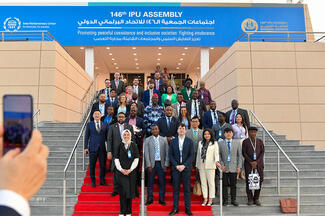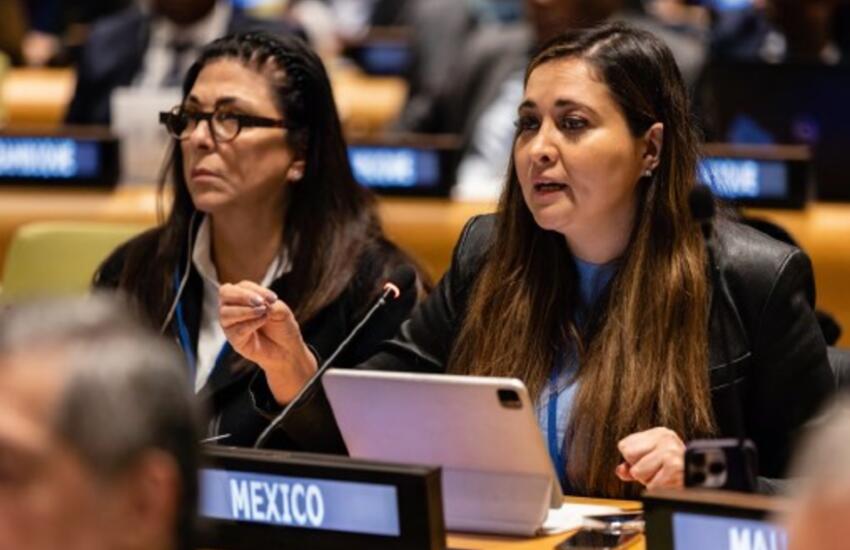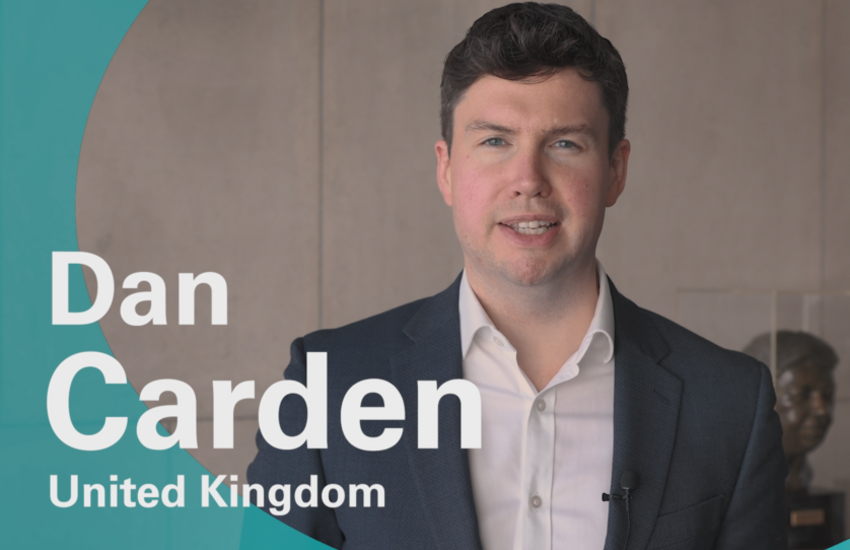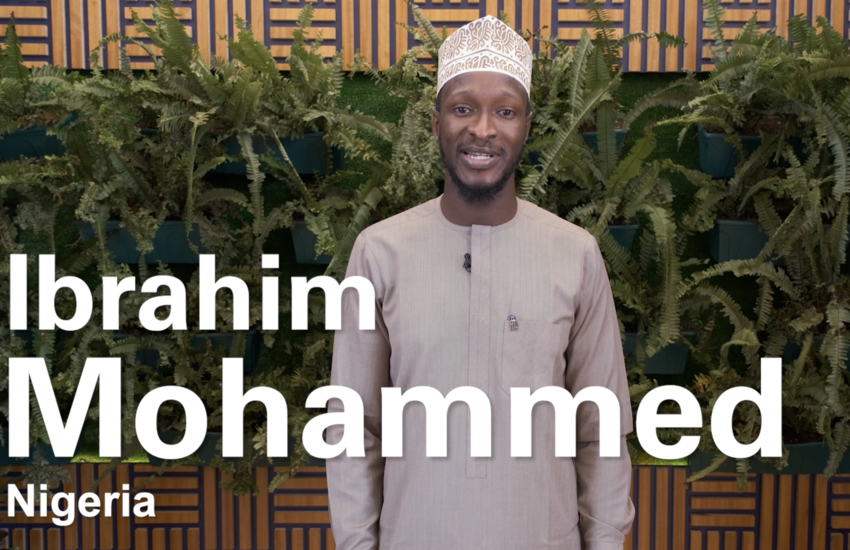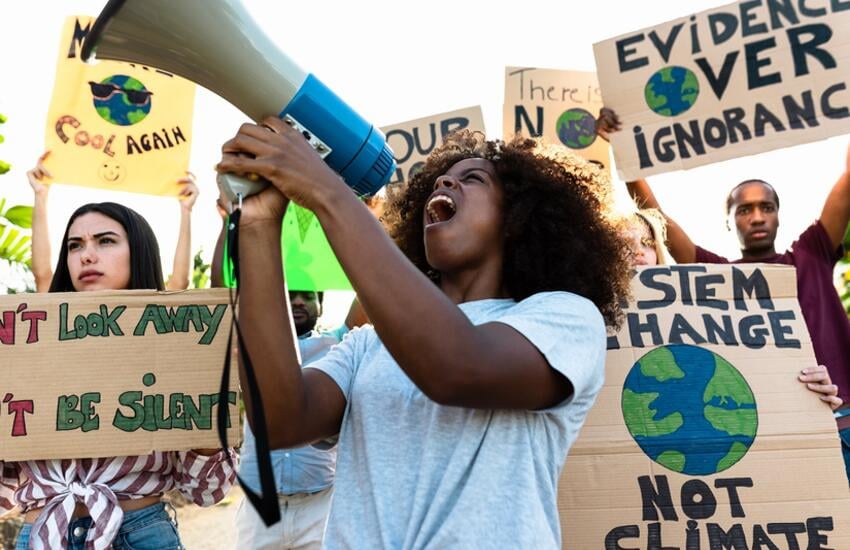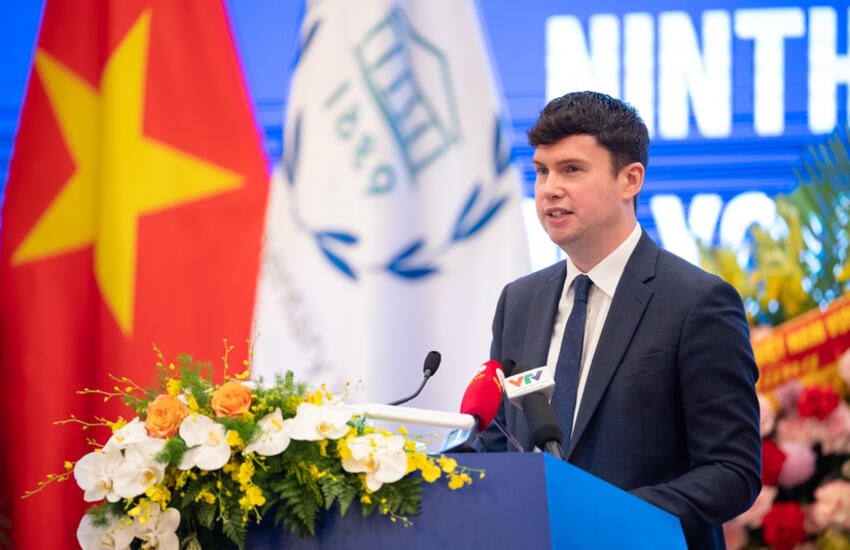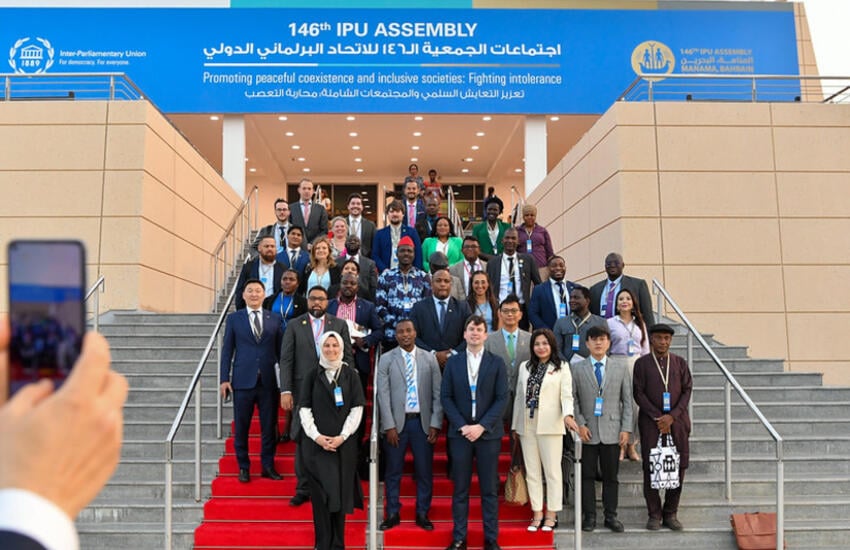Urging Parliamentary Action on Adolescent Well-Being through an IPU Resolution
Earlier this year, the IPU held its 146th Assembly in Bahrain. The IPU Forum of Young Parliamentarians met to take stock of developments in global and national youth participation in parliament. While 49% of the world’s population is estimated to be under 30 years of age, only 2.6% of parliamentarians are under that age.
However, the IPU has been taking positive steps to enhance youth participation in parliaments for decades, particularly following the adoption of a Resolution on Youth Participation in Democratic Process at its 122nd Assembly in 2010. Efforts include mobilizing pledges to support greater youth participation among Speakers and MPs and building the capacity of young parliamentarians in areas such as leadership and communications. The IPU also provides opportunities for parliaments to share their experiences of promoting youth participation through initiatives such as youth caucus strategic plans, networks of young MPs, caucuses and committees dedicated to promoting youth issues, and youth quotas. Furthermore, 56% of IPU member countries have organized youth parliaments to educate young people about parliamentary work.
We, who hold leadership positions in the IPU, including on the Board of the Forum of Young Parliamentarians and Bureau of Women Parliamentarians, feel that better understanding of what young people need and want would enable us to ensure that critical issues pertaining to adolescents and youth receive prioritization in national policies, development plans and budgets. This would also enable us to more actively mobilize young people to participate in political decision-making on issues that especially affect their lives, eventually leading to greater political representation by young people. These efforts need to be systematic, empowering, and meaningful. Understanding the evidence, as well as hearing what young people want, is key to our mission in parliament.
That is why we are supporting and championing a multi-year campaign organized by the Partnership for Maternal, Newborn and Child Health (PMNCH) called 1.8 Billion Young People for Change. PMNCH, with the World Health Organization as well as other multiple UN and academic partners, including youth-led and youth-serving organizations, has in the last couple of years developed consensus around an expanded definition and conceptual framework for adolescent well-being. The framework highlights the effectiveness of interventions to promote the well-being of adolescents (aged 10-19 years of age). These interventions promise a 10-fold return in health, social and economic benefits for every dollar invested in adolescent health. The 1.8 Billion campaign has been developed by young people for young people. One million young people will have a platform to express what they want most for their well-being. Their voices will be utilized to influence and shape national and global agendas through the development of an Action Agenda for Adolescents, which will be launched at the Global Forum for Adolescents on 11-12 October 2023, a major milestone of the campaign. The Global Forum will take place virtually, with livestreams from national and regional in-person events, serving as a highly visible stage for policymakers and all relevant stakeholders to present concrete political and financial commitments for improving adolescent well-being.
Parliamentarians have a critical role to play in ensuring the success of this campaign:
Accountability
Parliamentarians can assess how national laws, policies and plans are being implemented to accelerate progress and improve the well-being of this population group as part of the SDGs. They can also promote greater visibility of adolescents in policies and programming and accountability processes to ensure that this population group receives the attention it needs.
Legislation
Parliamentarians can ensure that laws, regulations and policies protect adolescents and youth, and promote access to quality, adolescent-friendly services.
Budgeting
Parliamentarians can ensure that government-led commitments for adolescent well-being are properly costed to enable full implementation, and budgets are tracked and reported upon.
Representation
Parliamentarians can represent the views and experiences of adolescents in parliamentary advocacy and accountability efforts, as well as increasing youth representation in parliamentary processes.
We believe that galvanizing collective action on this issue requires the development and adoption of an IPU resolution on Adolescent Well-being. Such a resolution would provide guidance and direction to multiple parliaments on effective measures to improve adolescent well-being. Building on existing IPU resolutions, such as the 2012 resolution on Access to health as a basic right: The role of parliaments in addressing key challenges to securing the health of women and children, a new resolution would reflect the need for multi-sectoral action to address all aspects of adolescent well-being, across its five domains. We urge all parliamentarians, especially young parliamentarians, to join us in this important endeavor.
Authors:
Hon. Dan Carden, Member of the House of Commons (UK), newly elected President of IPU Board of the Forum of Young Parliamentarians;
Hon. Cynthia Lopez Castro, Member of the Chamber of Deputies (Mexico), newly elected President of the Bureau of Women Parliamentarians;
Hon. Puteri Komarudin, Member of the House of Representatives (Indonesia), member of the Bureau of Women Parliamentarians;
Hon. Sahar Albazar, Member of the House of Representatives (Egypt), ex-President of the Board of the Forum of Yong Parliamentarians;
Hon. Vincent Tsvangirai, Member of Parliament (Zimbabwe).





